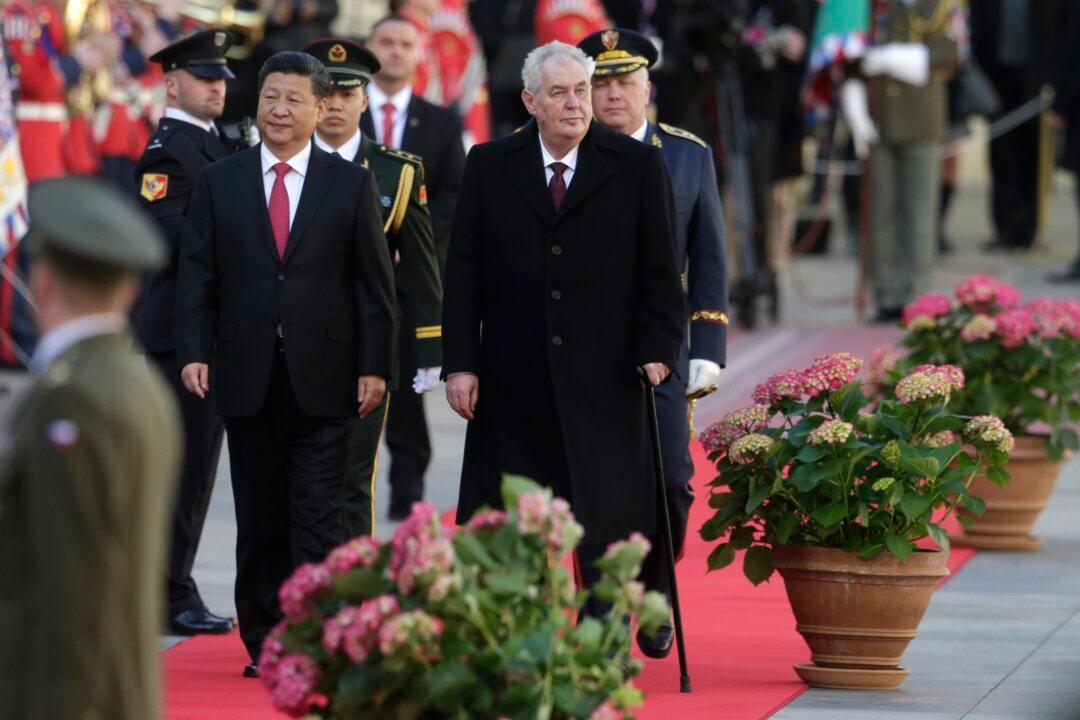PRAGUE—Fizzled investments, cyber security warnings and a Prague mayor defying Beijing by forging his own diplomatic path are muddying inroads China has made into the Czech Republic as it seeks to extend its influence in Europe.
Finding a more hospitable reception on eastern ground than in western Europe in recent years, China had been keen to take advantage of a Czech hunger to foster ties, led by President Milos Zeman, who has curried political favor with Beijing since taking office in 2013.





